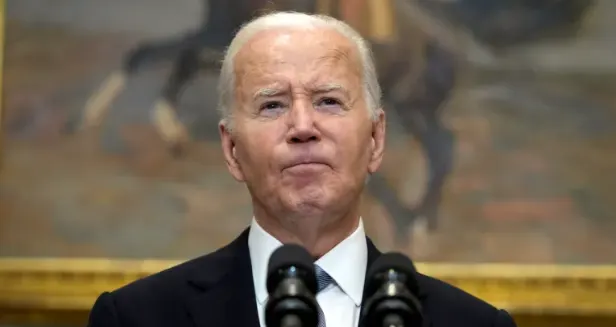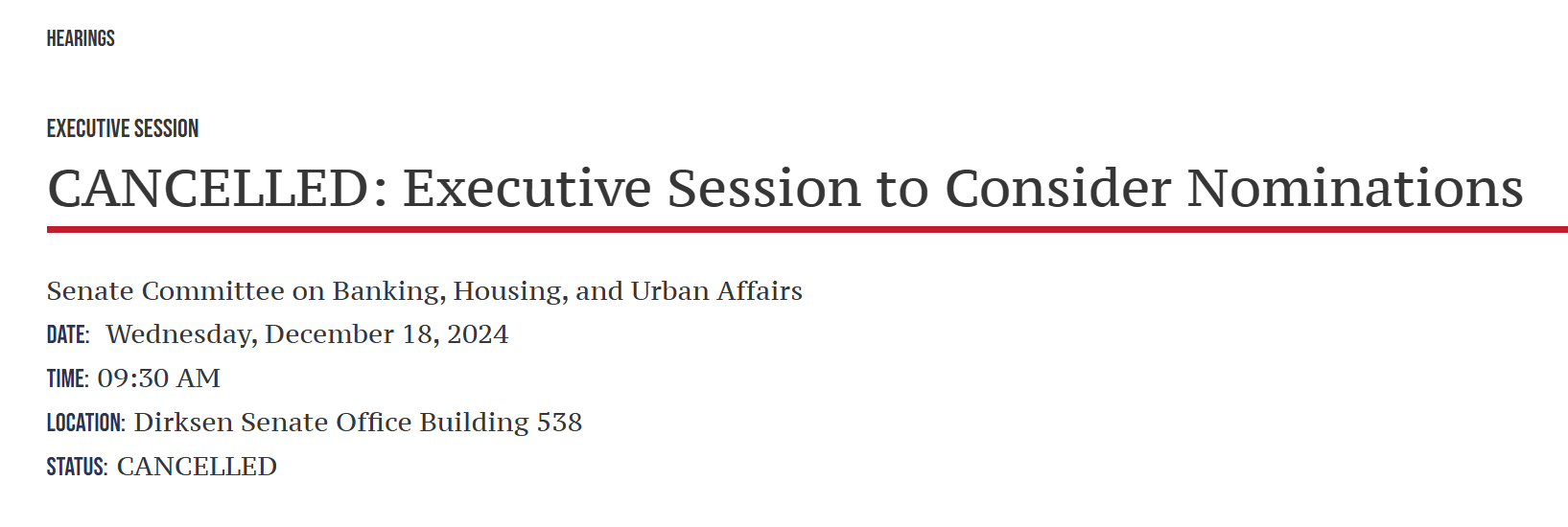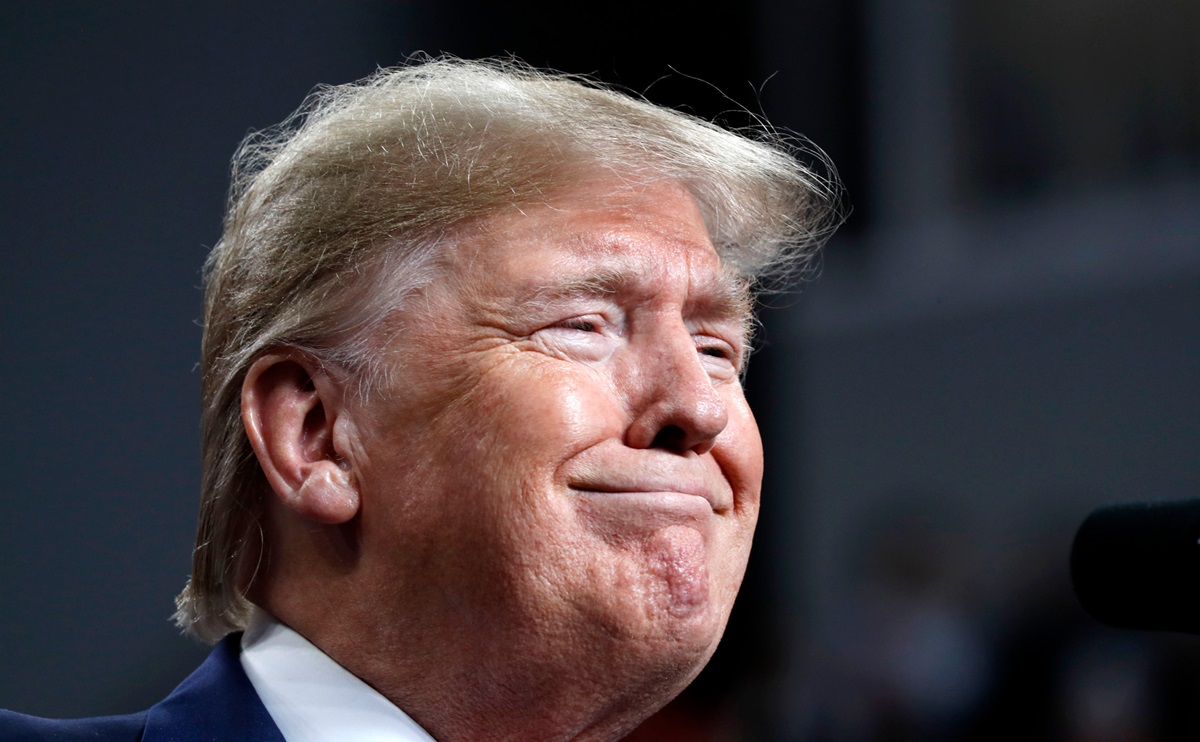The meeting with Trump coincided with Crypto.com’s decision to drop its lawsuit against the SEC in an attempt to align with the incoming administration. Meanwhile, Ohio also proposed a Bitcoin reserve bill after similar initiatives in Texas and Pennsylvania. President Biden backed a congressional stock trading ban after scrutiny over lawmakers’ crypto holdings, while SEC Commissioner Caroline Crenshaw’s renomination faces uncertainty due to crypto-related controversies and political shifts.
United States President-elect Donald Trump recently met with Crypto.com CEO Kris Marszalek at his residence in Mar-a-Lago to discuss policies that could impact the cryptocurrency industry. According to a Dec. 16 social media post, Marszalek traveled to Florida for the meeting, during which they reportedly explored Trump’s proposal to establish a national Bitcoin reserve and discussed potential appointments to his administration that could shape the future of the crypto sector.
The meeting coincided with Crypto.com’s decision to drop its lawsuit against the United States Securities and Exchange Commission (SEC). On the same day, the exchange voluntarily dismissed its case against the SEC and its commissioners with prejudice, according to a filing that was submitted to the U.S. District Court for the Eastern District of Texas.
Marszalek previously announced in October that the exchange planned to file the lawsuit to counter a Wells notice received from the SEC. However, a Crypto.com spokesperson revealed that the case was withdrawn to align with the firm’s intent to collaborate with the incoming administration on regulatory frameworks for the industry.
Since his election victory on Nov. 5, Trump very clearly indicated support for the crypto industry through his proposed appointments. The president-elect named several people with pro-crypto perspectives to key roles, including former PayPal COO David Sacks as the “AI and crypto czar” and former SEC commissioner Paul Atkins as his pick for SEC chair.
In addition to Marszalek, Trump also met with Coinbase CEO Brian Armstrong in November to discuss potential personnel appointments. These meetings happened after Trump launched his own digital asset initiative, World Liberty Financial, during his campaign.
Ohio Proposes Bitcoin Reserve Fund
Donald Trump is not the only person eyeing a Bitcoin stockpile. An Ohio lawmaker recently introduced legislation to establish a Bitcoin fund in the state treasury, making it the third U.S. state to pursue a Bitcoin reserve in just over a month.
Ohio House Republicans leader Derek Merrin proposed HB 703, the Ohio Bitcoin Reserve Act, on Dec. 17. The bill will grant the state treasurer the authority to buy Bitcoin as part of a broader asset allocation strategy, though it does not mandate these purchases.
Merrin described the initiative as a response to the devaluation of the U.S. dollar, and believes there is a need for Ohio to embrace emerging technology and safeguard tax dollars from losing value. He added that the legislation sets the stage for Ohio to take advantage of Bitcoin to strengthen its finances. He even compared the cryptocurrency to “digital property rights” and called it revolutionary for global economies.
The current legislative session is set to adjourn on Dec. 31, which means that the bill is unlikely to advance before then. Merrin stated that he expects the proposal to serve as a foundation for Ohio’s next legislative session, which begins Jan. 6 of 2025, when it will need to be reintroduced.
Merrin is a vocal supporter of crypto, and holds a top-tier “A” rating from Coinbase’s Stand With Crypto lobbying arm. He also consistently advocated for policies protecting individuals’ rights to own and transact with digital assets.
Ohio’s efforts are similar to initiatives in Texas and Pennsylvania after Donald Trump’s presidential election victory in November. His win brought renewed attention to Bitcoin’s potential role as a state or federal reserve asset. Texas Representative Giovanni Capriglione introduced the Texas Strategic Bitcoin Reserve Act on Dec. 12, proposing a five-year holding period for Bitcoin as a state reserve. In Pennsylvania, Representative Mike Cabell proposed legislation in November to permit the state treasury to allocate up to 10% of its holdings to Bitcoin.
Biden Backs Congressional Stock Trading Ban
President Joe Biden recently expressed his support for banning members of Congress from trading stocks while in office by stating that “nobody in the Congress should be able to make money in the stock market while they’re in the Congress.” In an interview to be released by the labor advocacy group More Perfect Union, Biden shared his thoughts amid calls to prevent potential conflicts of interest among lawmakers.
Although President Biden previously avoided commenting on legislation restricting stock trading for government officials, past proposals gained some renewed traction in Congress. In July, lawmakers from both the House and Senate supported measures to prevent the president, vice president, and members of Congress from trading or selling various financial assets, including stocks, commodities, and cryptocurrencies. This extends to assets disclosed under the STOCK Act, which was introduced in 2012 to enhance transparency.
Biden mentioned his own practice of relying solely on his Senate salary during his decades-long tenure representing Delaware from 1973 to 2009. While the president largely stayed silent on cryptocurrencies, he did sign an executive order in 2022 to create a regulatory framework for digital assets.
Concerns over potential conflicts of interest have intensified following the election of President-elect Donald Trump, who holds large amounts of crypto, including tens of millions of dollars in personal wallets and through his decentralized finance project, World Liberty Financial. As a result of this, critics questioned whether Trump’s financial interests and those of his supporters in the crypto industry could influence his policy decisions.
Several members of Congress, including Georgia Representative Mike Collins, Texas Senator Ted Cruz, and Wyoming Senator Cynthia Lummis, have disclosed their own cryptocurrency holdings, which only added to the scrutiny. Lummis is a strong Bitcoin advocate, and also proposed creating a strategic Bitcoin reserve for the United States, a move experts say could drive up the cryptocurrency’s price.
It is still unclear whether President Biden would support extending a stock trading ban to include Supreme Court justices. While the justices are allowed to trade stocks, they risk potential conflicts of interest if they do not withdraw themselves from cases involving their financial holdings.
Crenshaw’s SEC Nomination in Doubt
Meanwhile, United States lawmakers on the Senate Banking Committee canceled a planned session to consider the renomination of Caroline Crenshaw for a second term as a commissioner at the SEC. According to a Dec. 17 announcement, the committee will no longer meet on Dec. 18 to vote on Crenshaw’s nomination or that of Gordon Ito to the Financial Stability Oversight Council. This reduces the likelihood of Crenshaw’s confirmation before Republicans gain majority control of the Senate in January.
Cancelation of session to consider nominations (Source: US Senate Banking Committee)
Crenshaw has served as an SEC commissioner under both incoming President Donald Trump and current President Joe Biden, and her term ended in June this year. She is allowed to continue in her role for up to 18 months beyond her term’s expiration.
So far, her nomination faced some pushback from crypto interest groups, which labeled her “more anti-crypto” than SEC Chair Gary Gensler. On the other hand, more than 40 organizations urged senators to support her, arguing that a Trump-led administration is unlikely to appoint any Democratic SEC commissioners.
The SEC’s approach to cryptocurrency regulation and its political composition have been key issues for Trump, who campaigned on promises to overhaul the agency. Trump even vowed to fire Gensler immediately after taking office and suggested that his administration will adopt a more crypto-friendly stance. Crenshaw’s nomination, if reconsidered by the Republican-led Senate, is still uncertain. If confirmed, she could serve at the SEC until 2029.












